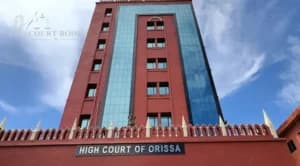The Bombay High Court has clarified that Indian citizens residing abroad for an uncertain period fall within the category of “persons resident outside India” under Section 2(q) of the Foreign Exchange Regulation Act, 1973 (FERA). The Court emphasized that the burden of proving otherwise rests on the individual whose residential status is under question.
This ruling came while dismissing a set of appeals filed by the Shroff family against penalties imposed by the Enforcement Directorate (ED) for unauthorized transactions in the shares of Ditco Securities Pvt Ltd, an Indian company. The penalties, ranging from ₹8.5 lakhs to ₹41 lakhs, were first issued by the Special Director of ED in an order dated October 30, 2000, and later confirmed by the Appellate Tribunal for Foreign Exchange on November 18, 2005.
Read Also:- Bombay High Court: Borrower Must Take Initiative to Seek MSME Relief Before NPA Classification
The main issue was whether the Shroff daughters could be considered “persons resident in India” under Section 2(p) of FERA during the period of the share transactions in 1995. The appellants contended they were Indian citizens temporarily in the United States for education or visits, holding only student or tourist visas. They maintained tax compliance in India, retained bank accounts, and argued there was no foreign exchange loss nor any deliberate violation.
However, the Court rejected these arguments, stating:
“Where the circumstances indicated the Shroff daughters’ intention to stay outside India for an uncertain period, it was for the Appellants to have produced some proper material... that the Shroff daughters had no intention whatsoever to stay outside India for an uncertain period.”
Read Also:- Husband Must Maintain Wife’s Living Standard Despite Her Income: Bombay HC
The Court noted that two daughters were married to US-based professionals and had resided in the US for years without producing any evidence of intent to return to India. The youngest daughter was studying in the US since 1992. The Court found no material supporting their claim of temporary stay.
Further, the Court observed that transactions in shares worth over ₹1.68 crores were made without prior permission from the Reserve Bank of India (RBI), constituting a violation of Sections 9, 19, and 29 read with Section 68 of FERA.
The appellants also challenged the applicability of Section 114 of the Indian Evidence Act, arguing that presumptions were improperly drawn. However, the Court held:
“The Tribunal has drawn an adverse inference by reference to illustrations under Section 114... and such findings are valid based on the common course of human conduct.”
Additionally, the Court addressed Section 59 of FERA, which presumes a culpable mental state. It ruled that this presumption stands unless rebutted by the accused, and no such rebuttal was successfully provided by the appellants.
Case Title: Neha Shroff & Ors. vs. Union of India through Enforcement Directorate
Bombay High Court, FERA Appeal Nos. 57 to 62 of 2006















